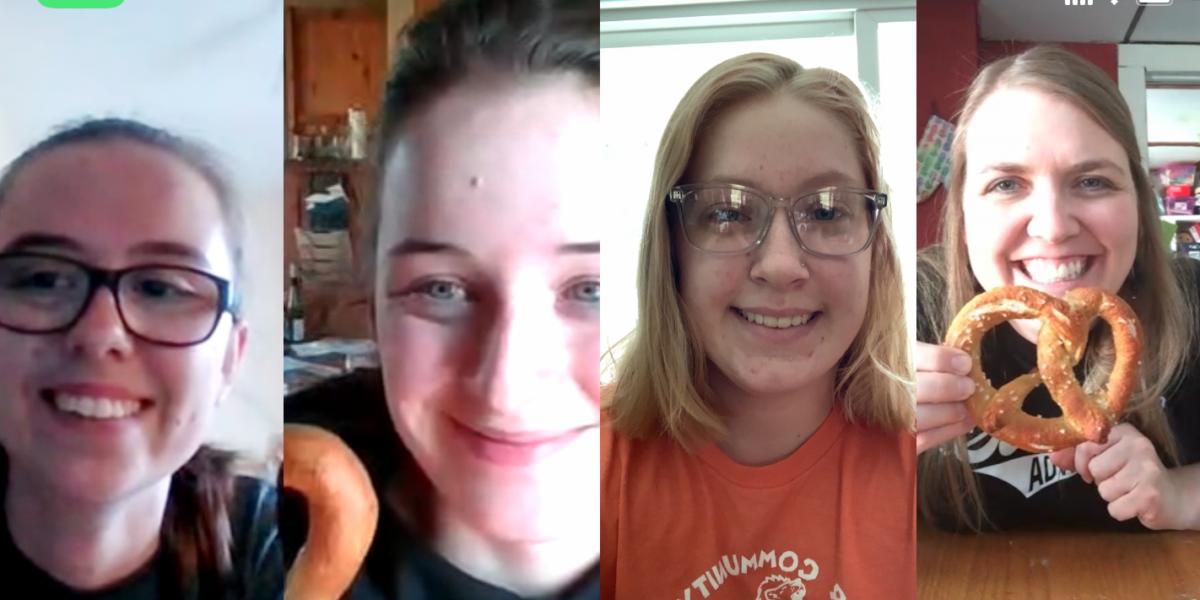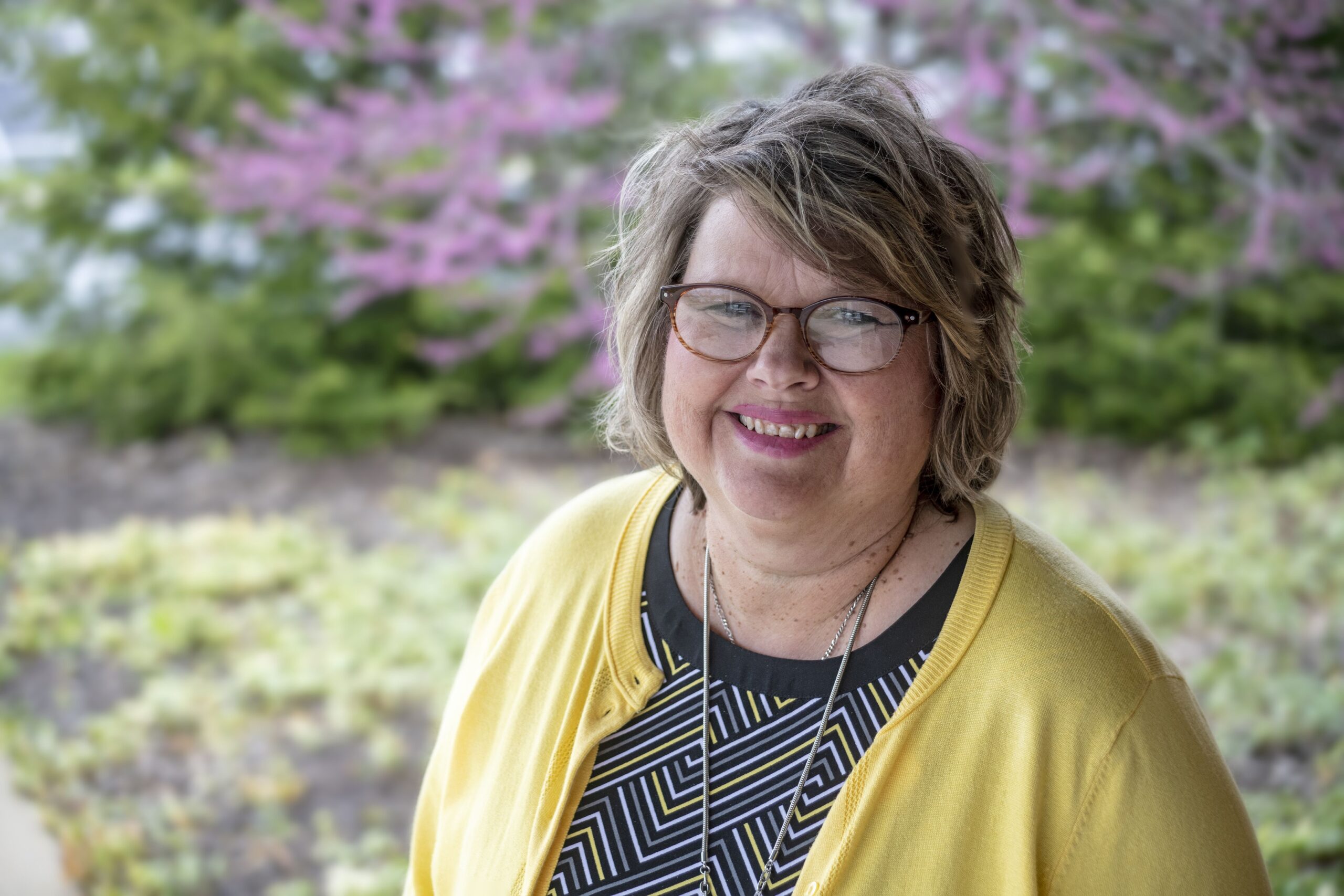NEWTON, Kansas (Mennonite Mission Network) — In mid-March, the plans of the Service Adventure unit in Johnstown, Pennsylvania, fell apart like a jigsaw puzzle thrown off the table of their shared life. The togetherness they planned on enjoying until mid-June shattered when the coronavirus pandemic required Mennonite Mission Network to shutter some residential sites for their Christian Service programs.
No sooner had the shutdown happened than the unit members decided coronavirus would not have the last word. Instead, they picked up the pieces of their shared lives and assembled them into a new online Skype call that happens several times a week, said Julie Yoder, leader of the unit with her husband, Eric. For the past two years, they helped create family with participants and their three children, Dane, Heath and Claire, at the Johnstown unit house.
The Skype calls have become a shared table where they can continue communing, bonding, and coping with being home much earlier than planned, Julie Yoder said. Invited to join the call are this year’s unit participants Harleigh Gibson, of Hutchinson, Kansas, and Marlene Knop and Marie-Helen Irrgang, both of Germany. Skype is helping to heal some trauma and is a coping tool for being home again.
"Within one day, on a Tuesday, our whole world was turned upside-down, and we were shocked and disappointed and were asking ourselves, ‘Is this really happening?’" Julie Yoder said. "In the blink of an eye, we were left with three days together instead of three months. … It was all just such a whirlwind. … The young women were forced to go home, but they really didn’t have much to go home to, since they couldn’t get jobs, see friends or extended family, or attend their home churches during the lockdown. They had changed a lot during their time in Johnstown and weren’t ready for their shared experience to be over."
The Skype sessions have become an emotional lifeline for the young women, including soulful calls centered on a book study about relationships with God, oneself and others, and well as playful macaron bake-alongs. They are engaging in online games such as Pictionary and are giving each other weekly challenges — including creating a documentary video of a fake vacation — in which the Yoder children also participated.
The weekly call is also helping participants to settle into a new normal at home. It no longer feels like the familiar place they left last fall — both because of how the world has changed, and how they have changed, participants said.
"This call is making all these changes a lot easier," Knop said. "I wasn’t really ready for saying goodbye, and so by staying in touch like this, it has helped me to be more OK with being at home, which doesn’t feel quite right yet."
Irrgang agreed. "It has given us a way to stay in touch while trying to figure out how to live our own lives now that we are apart and living out the growth we experienced while we were in Johnstown."
The Skype call option was not on the unit’s radar a month ago, when plans for fun outings and activities filled up the April, May and early June pages of the calendar.
It was the letting go of those plans that was most difficult for Gibson, who now finds herself a continent away from her former cohorts.
"We had so many adventures we had planned to do as a unit, and now we don’t get to do those," she said.
And yet, Service Adventure can often be about exploring the silver linings of Plan Bs, said Susan Nisly, Mission Network’s Service Adventure director. The silver lining for her — despite the angst of having to shut down units — is to see how the bonds that were formed in Johnstown continue. The Johnstown unit is one of the five Service Adventure units shuttered for this year.
Nisly said she is still planning for Service Adventure’s new year to begin in fall 2020 — applications are encouraged. Even though no one knows for sure what will unfold in the upcoming months, the Johnstown experience renews her faith in the value of the program and hopes for its future.
"This crisis has revealed to me how deeply unit leaders like Julie and Eric care about the young adults that come into their lives through Service Adventure," Nisly said. "After only eight months, they are like family! Julie keeps investing in the lives of these young women. This is completely beautiful to me."
Nisly continued, "These young adults want to stay connected to the unit leaders and the communities that they have been a part of. With church services being online, a lot of participants are still attending the services of their Service Adventure congregations. It has truly felt like a lemons-to-lemonade sort of situation to me."








